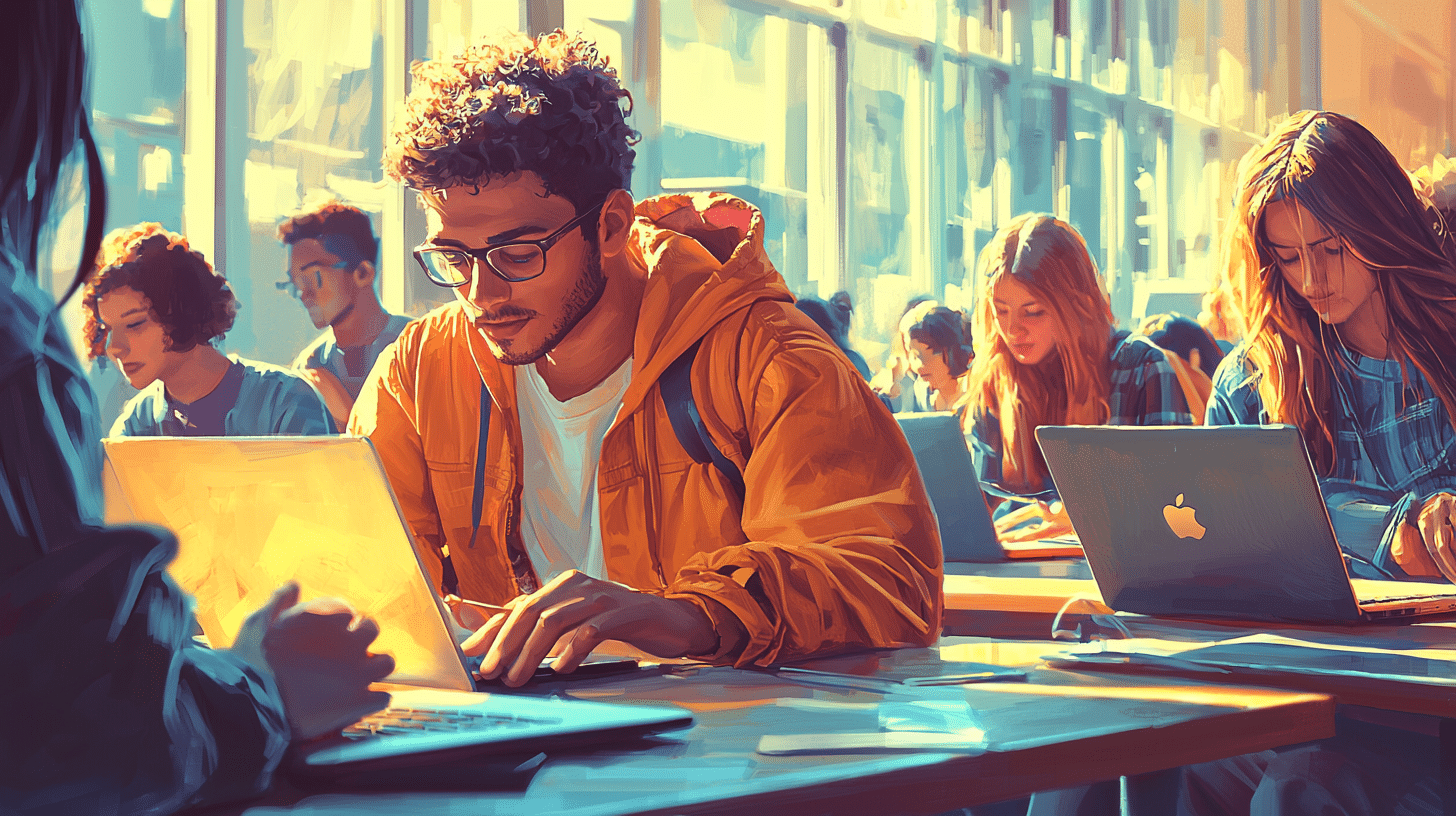The world of art and literature offers a unique and fulfilling way to immerse oneself in the culture and language of a country. For those learning Polish, familiarizing yourself with vocabulary related to art and literature can be especially rewarding. Not only does it enhance your linguistic skills, but it also provides deeper insights into Polish heritage and creativity. This article will guide you through essential Polish vocabulary for art and literature, helping you to discuss, appreciate, and critique these subjects more effectively.
Basic Vocabulary for Art
Art is a vast field that encompasses various forms and techniques. Here are some fundamental Polish words and phrases to get you started:
1. Sztuka – Art
2. Malarstwo – Painting
3. Rzeźba – Sculpture
4. Fotografia – Photography
5. Grafika – Graphics
6. Architektura – Architecture
7. Wystawa – Exhibition
8. Galeria – Gallery
9. Artysta / Artystka – Artist (male/female)
10. Obraz – Picture/Painting
11. Portret – Portrait
12. Martwa natura – Still life
13. Pejzaż – Landscape
14. Fresk – Fresco
15. Paleta – Palette
16. Pędzel – Brush
17. Płótno – Canvas
Describing Art
To describe art, you need adjectives and phrases that allow you to express your thoughts and emotions accurately. Here are some useful terms:
1. Piękny – Beautiful
2. Brzydki – Ugly
3. Kolorowy – Colorful
4. Czarno-biały – Black and white
5. Abstrakcyjny – Abstract
6. Realistyczny – Realistic
7. Surrealistyczny – Surrealistic
8. Symboliczny – Symbolic
9. Nowoczesny – Modern
10. Klasyczny – Classical
For example:
– Ten obraz jest bardzo kolorowy i piękny. (This painting is very colorful and beautiful.)
– Ta rzeźba jest abstrakcyjna i nowoczesna. (This sculpture is abstract and modern.)
Basic Vocabulary for Literature
When diving into the realm of literature, it’s essential to know the terminology that can help you navigate through various genres, forms, and aspects of literary works. Here are some key words:
1. Literatura – Literature
2. Książka – Book
3. Powieść – Novel
4. Opowiadanie – Short story
5. Wiersz – Poem
6. Dramat – Drama
7. Esej – Essay
8. Autor / Autorka – Author (male/female)
9. Poeta / Poetka – Poet (male/female)
10. Bohater – Hero/Protagonist
11. Antagonista – Antagonist
12. Fabuła – Plot
13. Motyw – Motif
14. Temat – Theme
15. Styl – Style
16. Narracja – Narration
17. Dialog – Dialogue
Describing Literature
To discuss literature effectively, you should be familiar with adjectives and expressions that convey your understanding and interpretation of a text. Here are some useful phrases:
1. Interesujący – Interesting
2. Nudny – Boring
3. Wciągający – Engaging
4. Inspirujący – Inspiring
5. Głęboki – Profound
6. Emocjonujący – Emotional
7. Tragiczny – Tragic
8. Komiczny – Comic
9. Realistyczny – Realistic
10. Fantastyczny – Fantastic
For instance:
– Ta powieść jest bardzo interesująca i wciągająca. (This novel is very interesting and engaging.)
– Wiersz jest głęboki i emocjonujący. (The poem is profound and emotional.)
Famous Polish Artists and Writers
Understanding the impact of notable Polish artists and writers can enrich your appreciation of the language and its cultural heritage. Here are a few you should know:
1. **Art**:
– Jan Matejko: Known for his historical paintings, Matejko is one of Poland’s most revered painters.
– Stanisław Wyspiański: A versatile artist known for his contributions to painting, stained glass, and drama.
– Olga Boznańska: A prominent painter recognized for her portraits and impressionist style.
2. **Literature**:
– Adam Mickiewicz: Often regarded as Poland’s greatest poet, Mickiewicz’s work is essential in Polish literature.
– Wisława Szymborska: A Nobel Prize-winning poet known for her insightful and thought-provoking poetry.
– Henryk Sienkiewicz: A novelist who won the Nobel Prize in Literature, famous for his historical novels like “Quo Vadis”.
Common Phrases and Sentences
To help you integrate this vocabulary into your conversations, here are some common phrases and sentences related to art and literature:
1. **Art**:
– Czy lubisz sztukę? (Do you like art?)
– Ta wystawa jest niesamowita. (This exhibition is amazing.)
– Kto jest twoim ulubionym artystą? (Who is your favorite artist?)
2. **Literature**:
– Jaką książkę teraz czytasz? (What book are you reading now?)
– Ta powieść jest bardzo interesująca. (This novel is very interesting.)
– Kto jest twoim ulubionym autorem? (Who is your favorite author?)
Expanding Your Vocabulary
To truly master this vocabulary, immerse yourself in Polish art and literature by:
1. **Visiting Museums and Galleries**:
– Explore local museums and galleries that feature Polish art. Pay attention to the descriptions and titles in Polish.
2. **Reading Polish Literature**:
– Start with simpler texts and gradually move to more complex works. Don’t be afraid to use a dictionary or translation tool to understand new words.
3. **Participating in Discussions**:
– Join book clubs or art groups where you can practice discussing these topics in Polish.
4. **Watching Films and Documentaries**:
– Watch Polish films and documentaries about art and literature. This will help you hear the vocabulary in context and improve your listening skills.
Conclusion
Learning Polish vocabulary related to art and literature not only broadens your linguistic skills but also deepens your understanding of Polish culture. By familiarizing yourself with the terms and phrases in this guide, you’ll be better equipped to appreciate, discuss, and critique Polish art and literature. Remember, the key to mastering any language is consistent practice and exposure, so immerse yourself as much as possible in Polish artistic and literary environments. Happy learning!

